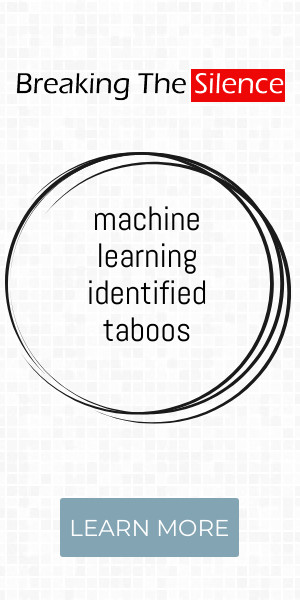In South Korea‘s glitzy, highly manufactured music industry, these kinds of scenes are not uncommon.
Homophobia is still rife in South Korea, where very few mainstream music stars have come out as gay.
The country has no comprehensive anti-discrimination laws to protect LGBTQ South Koreans, and compared to nearby democracies like Japan and Taiwan,the country is less accepting of same-sex couples.
There’s no such option in South Korea.
For decades, South Korea had been under military rule.
The stories often featured romance between same-sex stars. Kwon said there are several reasons that was the case. Fans often didn’t think they were worthy of their idols themselves, so they matched them with stars from the same band — and most bands were exclusively girl or boy groups. Same sex relationships were often seen as taboo, which made them more “intriguing,” said Kwon.
As internet downloads ate into record sales in the 2000s, South Korea‘s record labels realized they couldn’t just focus on the music — they needed to package stars in a way that would appeal to fans.

South Korea‘s record labels are happy to let fans fantasize about idols being gay.
When he debuted in 2018, he attracted a lot of positive attention overseas. But back home in South Korea, the reaction was muted — or even negative.
Nevertheless, Holland remained determined to make a statement. While filming the music video for his first single “Neverland,” the director told him that there would be a 19+ rating in South Korea if the clip showed any same-sex affection.
In South Korea, Holland’s decision to come out is unusual.
As K-pop’s international reach grows, K-pop itself is changing. In South Korea, interaction between stars is seen through a different lens — fans see it as fantasy, and there’s also more of a culture of male friends touching each other, in part because of how heteronormative the culture is.
DANICA CREAHAN WRITES– To the nearly half a million people who follow @studiobysol on instagram, the fact that most tattooing is illegal in South Korea might come as a shock.
Located in Seoul, South Korea’s capital, Studio by Sol is comprised of 29 tattoo artists, each with individual follower counts in the thousands.
Since 1992, the government of South Korea has enforced a law that restricts tattoo privileges to licensed medical professionals.”Tattooing is a medical act that can pose a danger to the human body if it’s allowed for non-medical personnel,” an official from the Korean Medical Association told Korea Biomedical Review back in 2017. Historically, Korean culture has associated tattoos with gangs and violence, and remnants of these negative associations remain among older generations.
We should apply the same caution to tattooing.” Though getting tattooed can be therapeutic for some, there is risk involved if an artist is careless about following standard sterilization procedures. South Koreans in fact see tattooing as science, not art.
Despite legal restrictions, South Korea harbors a thriving community of “underground” tattoo artists.
This creates a Catch-22 situation: while tattooing done the South Korean way is completely legal, very few licensed medical professionals maintain such studios.

Back in 2017, in fact, the publication Roads and Kingdoms estimated that there were around 20,000 illegally operating tattoo artists in South Korea.
These characters come together in Itaewon Class, a South Korean drama that celebrates diversity and the underdogs in a country widely seen as homogenous, conservative and conformist.
Itaewon Class just ended its run at home last Saturday with a rating of 16.5 per cent for its finale, making it the second most watched drama on cable channel JTBC, after Sky Castle. It is the top-ranked drama on Netflix in both South Korea and Singapore.
About two million foreigners live in South Korea, comprising 4 per cent of the country‘s 50 million population.
Prejudice against foreigners, which experts attribute to a lack of awareness and exposure among Koreans, is among the once-taboo topics tackled in the drama.
Cross-cultural marriages are also frowned upon in South Korea – an issue which is reflected in the drama.
All the social misfits one can think of in South Korea have come together in Itaewon Class, a drama that celebrates diversity and the underdogs in a country widely seen as homogenous.
It is the top-ranked drama on Netflix in both South Korea and Singapore.
Itaewon is also home to many foreigners residing in Seoul, with some 40 embassies based in the area. About two million foreigners live in South Korea, accounting for four per cent of the 50 million population.
Prejudice against foreigners is among the once-taboo topics tackled in the drama.
Cross cultural marriages are also frowned upon in South Korea – which is reflected in the drama.
When South Korea ’s hit television series The World of the Married wrapped up in May, it should have been an unqualified success.
One of the show’s stars, Han So-hee – who plays a spoilt dancer-turned-Pilates instructor who has an affair with a married man in the show – was forced to answer questions about a real-life issue that has struck some South Koreans as just as scandalous as her on-screen love affair.
The public’s response to the photos left little doubt that, despite young South Koreans embracing body art in ever larger numbers, tattoos remain very much taboo among large sections of the public.
TATTOO TABOO
Every year, scores of crackdowns on tattoo parlours are carried out by the authorities, but there are still an estimated 20,000 tattooists in the country who practise their craft without the right credentials. They go by stage names and promote their businesses on social media, according to the Korea Tattoo Association, which strives to legalise their work and estimates that about 1 million of South Korea’s 51 million people now have tattoos, legal or otherwise. The tattoo market in the country is thought to be worth about 200 billion won a year.
As with the Yakuza in Japan, tattoos have in the past been symbols of gang affiliation in South Korea.
“But perspectives have been changing, which can be seen by how we use the English word ‘tattoo’ nowadays instead of the traditional Sino-Korean word moonshin which carries more of the taboo.
A year later, South Korean soccer hero Ahn Jung-hwan surprised fans with a flash of his own tattoo on his shoulder during a highly watched goal celebration in a significant match against rivals Japan.
Following the implementation of the Defense Department’s plans to address its gaps on matters of “diversity, inclusion, and equal opportunities,” the commander of US forces stationed in South Korea offered a compelling reason for the changes, and highlighted of the difficulties in implementing the newfound approach.
US forces conduct a joint military exercise with South Korean marines.
Abrams, who toured US military bases across South Korea for updates on the initiative, discussed some of the difficulties in developing solutions to a social problem that was “really impacting our formation.
More than a quarter of a century after the first of her three abortions — illegal in South Korea — Lim is still haunted by her sense of shame.
She was 24 and had a boyfriend, but neither was ready to wed. And it was 1993, when sex before marriage was still very much a taboo in the conservative country.
Keeping the baby would have meant living with stigma, even if the couple married after the birth, so she chose an illegal abortion — also a taboo.
Fast forward 26 years, and South Korea remains one of the few developed economies that still bans abortions except in cases of rape, incest or when the mother’s health is in danger.
 Statistics show that as recently as 2011, most South Korean women who had abortions were married, but rights groups say the majority of those charged for undergoing the procedure have been unmarried, including teenagers.
Statistics show that as recently as 2011, most South Korean women who had abortions were married, but rights groups say the majority of those charged for undergoing the procedure have been unmarried, including teenagers.
South Korea comes near the bottom of many OECD gender equality tables and Ryu Min-hee, the lead counsel on the constitutional court case, said that as long as women cannot make their own choices about pregnancy and parenthood, the country “won’t be able to establish an equal society in its true sense”.
Religious belief is widespread in South Korea, and some of its evangelical mega-churches are among those leading the charge against overturning the ban.
But Lim says her own experience demonstrates how South Korea‘s pro-lifers have been selective about which lives matter.
With each new song and album release, South Korea’s BTS just keeps getting bigger and bigger, and now the group has officially made history-again.
This shouldn’t be a surprise to anyone who has been paying attention to their rise as not only South Korea’s biggest boy band but also in the world.
They steadily gained notoriety through their songs that criticized South Korea’s collectivist society, mental health, and depression.
BTS is consistently breaking barriers for K-Pop and Asian acts by talking about taboo topics about mental health, physical struggle, and desire to be accepted in the seemingly perfect music industry.
The text of this article was generated by the Breaking The Silence system that collected 8 news articles posted on the web from January 2019 to September 2020 and clustered for the taboo subjects related to South Korea














































































